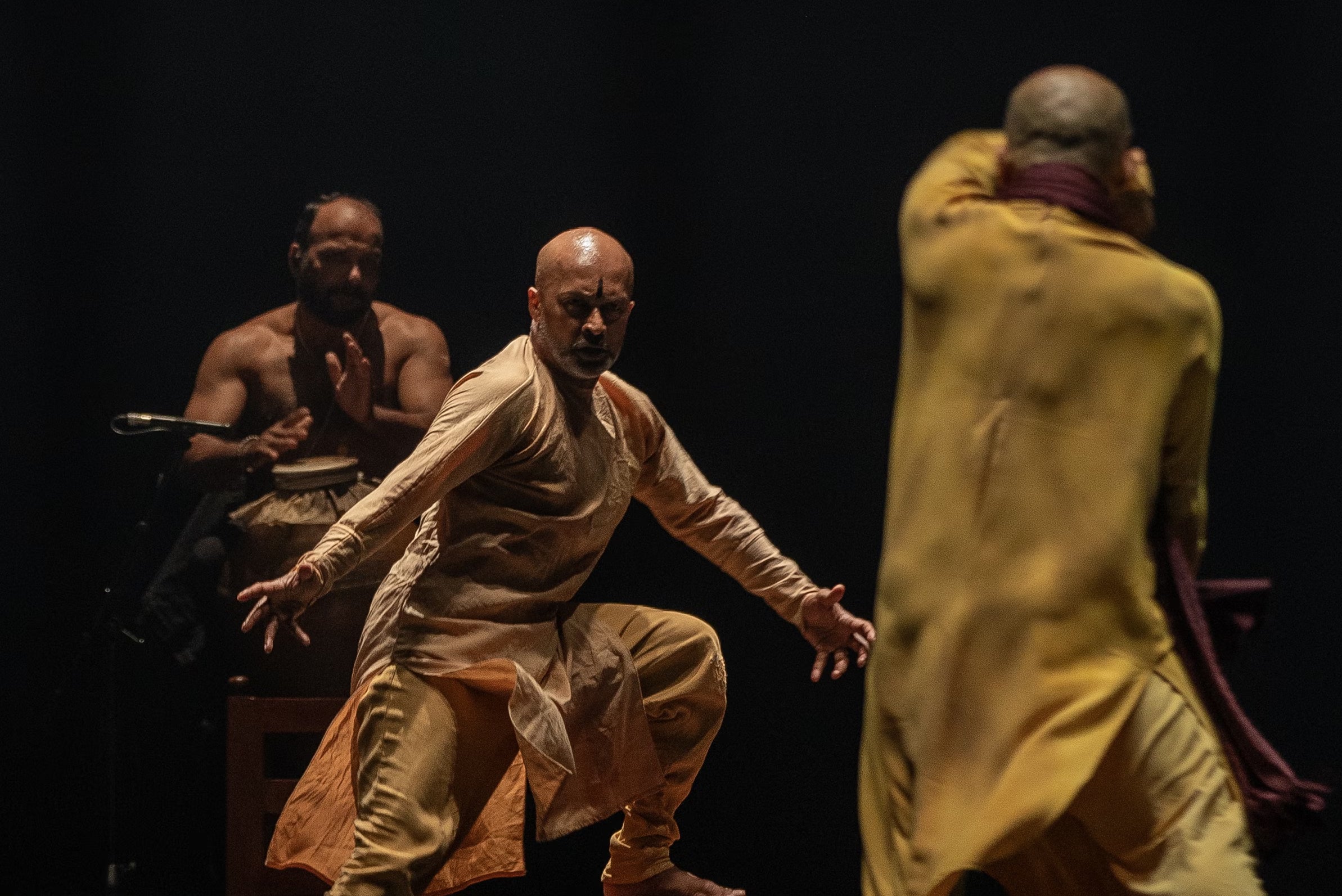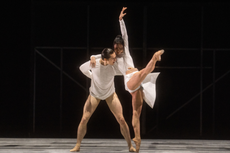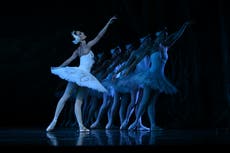Akram Khan – Gigenis review: A powerful return to the stage that still leaves us with questions
Making his stage return after four years away, dancer-choreographer Akram Khan draws on his Indian classic training for a stylised drama about a family at war

Returning to the stage after four years, dancer-choreographer Akram Khan is also coming back to his roots. The new Gigenis: The Generation of the Earth draws on his Indian classical training in a stylised drama about a family at war. It’s handsomely danced, with some beautiful imagery, but Khan seems to hold the material at arm’s length.
Gigenis retells a story from the Mahabharata, the epic poem that has been a touchstone in Khan’s career. The mother is the focus of the story, played by several different dancers as she reflects on her life as wife, mother, and woman alone.
Created with Productions Sarfati, it’s a stripped-back affair. The stage is framed by lamps and low platforms for the musicians. Peggy Housset’s costumes use traditional shapes in plain fabrics and muted colours.
Khan evokes war through the sudden volume of the music, with emphatic sound design by David Price. The lamps tremble as if bombs were falling, while lighting designer Zeynep Kepekli’s gently evokes the changing time and weather, from a sunlit wedding to a gathering storm. When the cast of seven thunder into circles, they suggest the fury of battle.
While the choreography is rooted in Indian classical dance, it makes sparing use of storytelling gestures. Where traditional dances can turn fluttering hands into an ongoing conversation, Khan focuses attention on several key gestures, which echo through the piece. In the opening image, we see the mother reach out to one of her sons, the dancer’s delicate fingers forming a crown. As her other son, Khan tries to snatch away the imagined prize.
Khan’s characters fall somewhere between individuals and archetypes. There’s a wonderful wedding dance for the mother, and a solo full of rage, but less sense of her as a person. Between the shared roles and subdued production, the narrative can be hard to follow. Individual scenes shine out, but there’s less sense of motivation or drive.
Appearing very much as part of the fine seven-strong ensemble, Khan is still a powerful dancer. In solos, he dances with ferocious intensity, shaking with anger after failing to take the crown.
But we don’t see enough of his relationship with his brother, strongly danced by Mavin Khoo, to see what drives their breakdown. Why are they trapped in this pattern? Why is one son preferred over the other? Gigenis asks questions, but doesn’t dig into the answers.
Sadler’s Wells, until 24 November; sadlerswells.com
Join our commenting forum
Join thought-provoking conversations, follow other Independent readers and see their replies
Comments


Bookmark popover
Removed from bookmarks